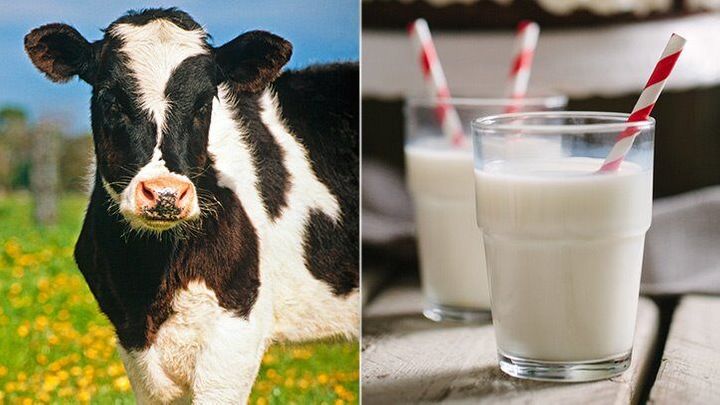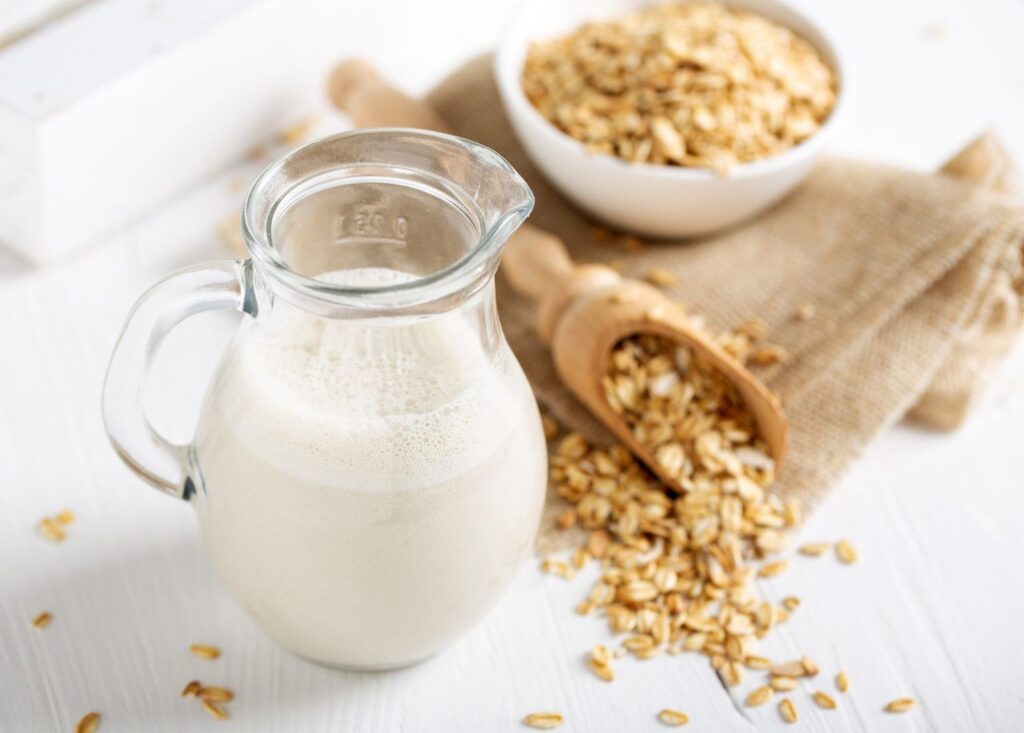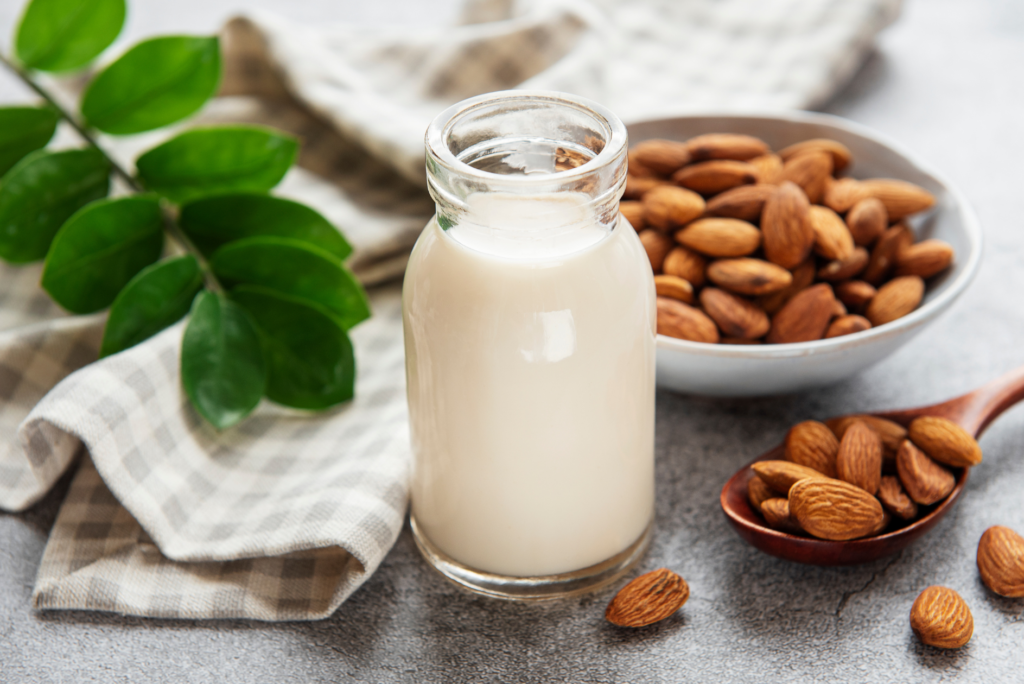
The dairy aisle has expanded dramatically in recent years, with a plethora of plant-based milk alternatives like oat milk and almond milk. It is a maze of types, with cow’s milk, oat milk, almond milk, and more.
But which one is right for you? Let’s break down the differences between skimmed milk, oat milk, and almond milk.
The Milk Trio
The hardest decisions make the strongest people. But we can make the journey to choosing the right milk for you easier! Explore these types of milk here!
1. Skimmed Milk

Image via Everyday Health
Skimmed milk is a low-fat option that’s packed with nutrients. It’s a great source of calcium, protein, and vitamins B12 and D. However, it’s not suitable for those with lactose intolerance. Yup, this is the one you ditch because you believe it prevents you from losing weight compered to the other types of milk.
2. Oat Milk

Image via Allrecipes
Oat milk is a popular plant-based alternative to dairy milk. It’s creamy, has a mild flavour, and is naturally high in fiber. Oat milk is also a good source of calcium and vitamin D, making it a nutritious choice for vegans and those with lactose intolerance.
3. Almond Milk

Image via Stephanie Lee Nutrition
Almond milk is another plant-based alternative that’s gaining popularity. It has a slightly nutty flavor and is low in calories. Almond milk is a good source of calcium and vitamin E, but it’s lower in protein compared to cow’s milk and oat milk.
Let’s Break Them Down
Refer to the table below:
| Feature | Skimmed Milk | Oat Milk | Almond Milk |
| Source | Cow’s Milk | Oats | Almonds |
| Nutrients | High in calcium, protein, vitamins B12 and D | High in fiber, calcium, and vitamin D | High in calcium and vitamin E |
| Taste | Creamy and slightly sweet | Mildly sweet with a nutty flavour | Nutty flavour |
| Suitable | People with no dietary restrictions | Vegans, lactose intolerant | Vegans, lactose intolerant |
Choosing The Right Milk
We can’t say which one’s the best, because it all depends on your preferences. Consider your dietary restrictions, nutritional goals, and taste preferences. It might be helpful to try different types of milk to find your favourite.
Ultimately, the most important thing is to choose a milk that you enjoy drinking and that fits into your overall healthy lifestyle.










